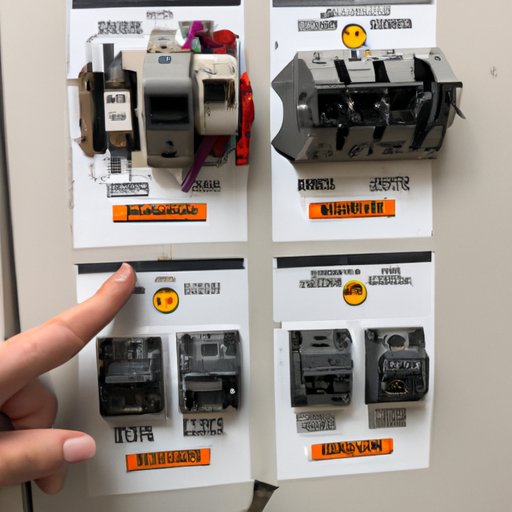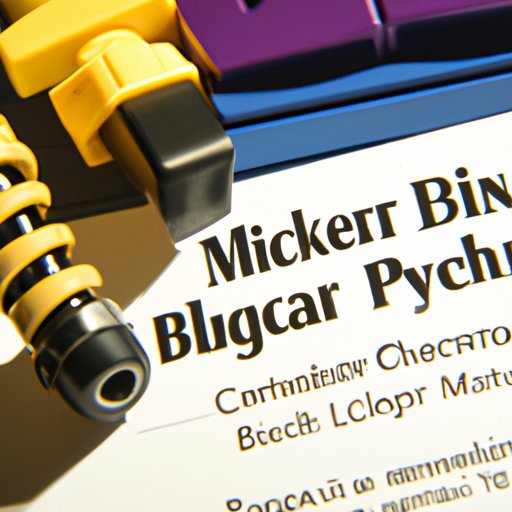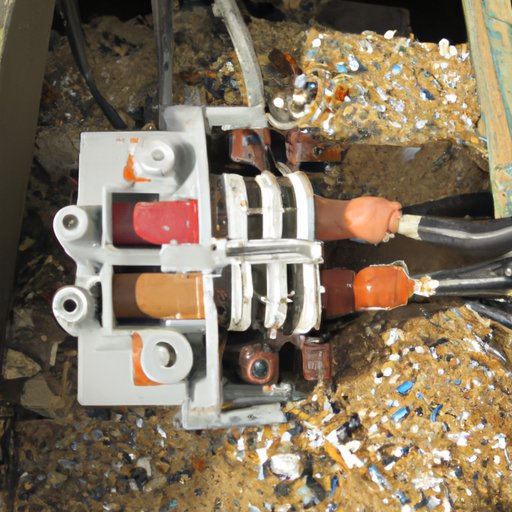Introduction
A main breaker trip is an interruption in the main power supply to your home or office. This can be due to a variety of reasons, ranging from simple electrical overloads to more complex issues such as faulty wiring or poor maintenance. In this article, we’ll explore the most common causes of a main breaker trip and how you can troubleshoot them.

Understanding the Reasons Why Your Main Breaker May Trip
The first step in understanding why your main breaker may trip is to understand the different types of electrical problems that can cause it. These include:
- Electrical Overloads: An electrical overload occurs when too much current is drawn from a circuit. This can happen if too many appliances are plugged into a single outlet or if one appliance has a higher wattage than the circuit can handle.
- Short Circuits: A short circuit is caused by a direct connection between two wires. This can occur if the insulation on a wire is damaged or if a wire is incorrectly installed.
- Ground Fault Interruptions: A ground fault interruption (GFI) is a safety device that shuts off power when an imbalance between the current flowing through the hot wire and the neutral wire is detected.

Exploring Factors That Can Lead to a Main Breaker Trip
In addition to the electrical problems mentioned above, there are several other factors that can lead to a main breaker trip. These include:
- Overloaded Circuits: If too many appliances are plugged into a single circuit, it can cause an overload and trigger the main breaker trip. To prevent this from happening, make sure to spread out the load among multiple circuits.
- Faulty Wiring: Poorly installed wiring or damaged insulation can create a short circuit, which can lead to a main breaker trip. Make sure all wiring is properly installed and inspected regularly for any damage.
- Loose Connections: Loose connections between wires can cause arcing, which produces heat and can cause a main breaker trip. Check all connections regularly to ensure they are secure.
Troubleshooting Main Breaker Trips and How to Resolve Them
If your main breaker trips, the first step is to identify the source of the problem. To do this, start by turning off the breaker and examining the circuit breaker panel. Look for any signs of arcing or burning, which could indicate a short circuit or loose connection. If you don’t find any obvious signs of a problem, try plugging in a few different appliances to see if the breaker trips again.
Once you’ve identified the source of the problem, the next step is to repair or replace any damaged equipment. If the problem is a short circuit, check the wiring and connections to make sure they are secure. If the problem is an overloaded circuit, move some of the appliances to another circuit. Once everything is repaired and the circuit is back up and running, make sure to inspect it regularly to prevent future problems.

Examining the Most Common Causes of a Main Breaker Trip
Now that we’ve explored the different factors that can lead to a main breaker trip, let’s take a look at the most common causes. These include:
- Faulty Wiring: Poorly installed wiring or damaged insulation can create a short circuit, which can lead to a main breaker trip. Make sure all wiring is properly installed and inspected regularly for any damage.
- Poor Maintenance: Regular maintenance and inspection of your electrical system can help prevent a main breaker trip. Check all wiring and connections regularly to ensure they are secure.
- High Voltage Surges: High voltage surges can occur when lightning strikes nearby or when a large appliance is turned on or off. To protect your electrical system from these surges, install a surge protector.
Conclusion
Main breaker trips can be caused by a variety of factors, ranging from electrical overloads and short circuits to faulty wiring and poor maintenance. By understanding the most common causes and taking steps to troubleshoot and resolve them, you can keep your electrical system safe and avoid potential problems in the future.
In conclusion, main breaker trips can be prevented with regular maintenance and inspection of your electrical system. Be sure to check all wiring and connections regularly, and install a surge protector to protect your system from high voltage surges. With a little bit of knowledge and effort, you can keep your electrical system running smoothly for years to come.
(Note: Is this article not meeting your expectations? Do you have knowledge or insights to share? Unlock new opportunities and expand your reach by joining our authors team. Click Registration to join us and share your expertise with our readers.)
